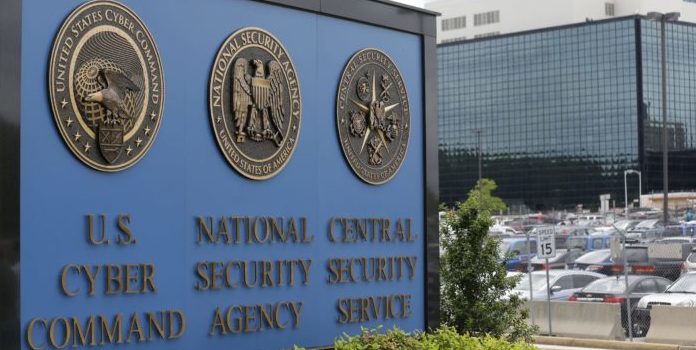(Ken Silva, Headline USA) The U.S. National Security Agency is urging the Supreme Court to uphold a ruling that would essentially make its mass surveillance activities legally unchallengeable.
The ruling the NSA seeks to keep intact was made by the Fourth Circuit Court of Appeals in September 2021, when justices allowed the spy agency to exercise its “state secrets” privilege to quash a lawsuit from the Wikimedia Foundation.
Wikimedia had sued the NSA in 2015 over its “upstream” surveillance, which entails the agency monitoring all private emails, messages and other data flowing into and out of the country on the internet’s central arteries.
In response to the lawsuit, the NSA claimed it couldn’t defend itself in court without divulging sensitive state secrets that would jeopardize national security.
In a decision that critics said defied precedent, a lower court agreed with the NSA and tossed the lawsuit — without reviewing the evidence that the government sought to keep secret. The Fourth Circuit upheld the decision in September 2021, ruling that the lawsuit “cannot be fairly litigated any further without disclosure of state secrets.”
In August, Wikimedia filed a writ of certiorari with the Supreme Court, calling for the Fourth Circuit ruling to be reviewed.
Wikimedia argued that the Fourth Circuit was wrong to dismiss its lawsuit without reviewing the NSA’s claim that litigation would reveal state secrets. The organization explained that judges can review evidence in private to determine whether it should be excluded from open court, but that judges should not dismiss an entire case based on the state-secrets doctrine.
In its response filed Friday, the NSA disagreed. According to the spy agency, even if a judge reviewed sensitive evidence in private, the agency’s secrets would still be jeopardized.
“If a court were either to dismiss or decline to dismiss … after reviewing the government’s privileged (and highly classified) evidence on the matter, the dismissal would effectively reveal sensitive intelligence matters— state secrets—that cannot be publicly confirmed or denied without significant harm to the national security,” the NSA said in its brief.
Numerous civil liberties groups have criticized the NSA’s position on the matter, warning that it would allow government agencies to operate in secret without any judicial review.
A group of former federal judges also filed an amicus brief in the case last September, agreeing with the civil liberties organizations.
“A rule that allows the government to quash litigation merely by asserting it may have defenses involving sensitive information invites Executive overreach and error,” the former judges said in their brief. “The court should grant review to clarify that judges retain a meaningful role in evaluating claims of privilege, and that they should not, as a rule, blindly defer to the government’s assertion that litigating a case would disclose state secrets.”
SCOTUS has not indicated when it will decide whether the hear Wikimedia’s petition. Headline USA will continue to follow the case as it develops.
Ken Silva is a staff writer at Headline USA. Follow him at twitter.com/jd_cashless.

